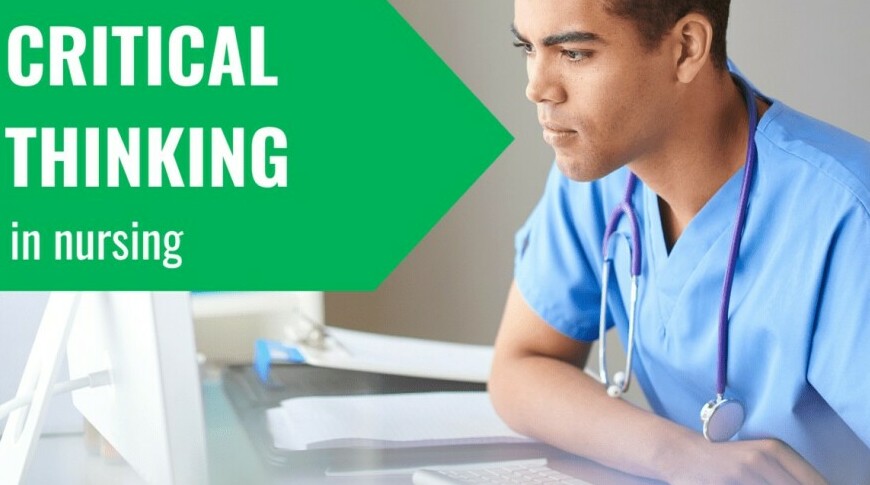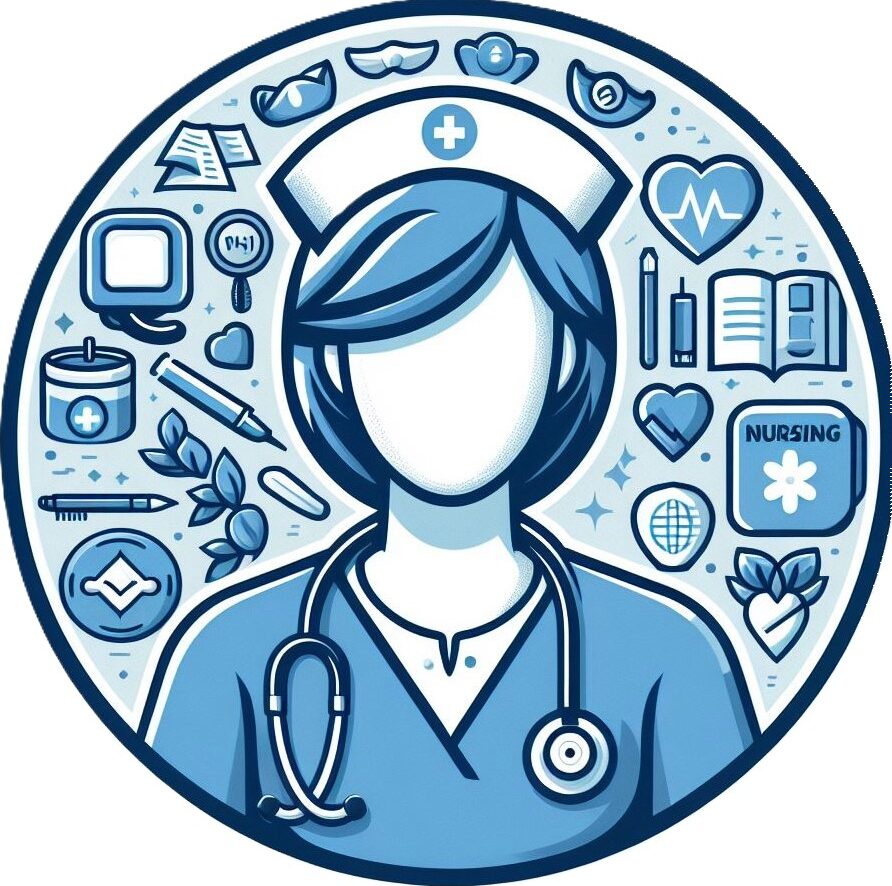 In this article, I am going to discuss about the importance of critical thinking in nursing as it is the core skill that distinguishes competent nurses from extraordinary ones. I believe, critical thinking shapes every encounter and decision in the field of nursing. It’s the ability to think clearly and rationally, to understand the logical connection between ideas, and to engage in reflective and independent thinking.
In this article, I am going to discuss about the importance of critical thinking in nursing as it is the core skill that distinguishes competent nurses from extraordinary ones. I believe, critical thinking shapes every encounter and decision in the field of nursing. It’s the ability to think clearly and rationally, to understand the logical connection between ideas, and to engage in reflective and independent thinking.
Firstly, critical thinking enhanced patient care. It enables nurses to assess patient needs, recognize changes in patient conditions, and make informed decisions about care. This involves evaluating complex situations, identifying potential problems, and implementing appropriate interventions. By thinking critically, nurses can ensure that they provide the most effective and personalized care possible. The decisions made by critical thinkers in nursing often mean the difference between recovery and further complications for patients.
By discussing about critical thinking that nurses do, it is not only having good judgment, but also being inquisitive, analytical, and creative in problem-solving. It is an ability to analyze situations, consider various solutions, and choose the best course of action. This skill is vital in emergency situations where quick, effective decision-making can significantly impact on patient outcomes.
Evidence-Based Practice is the next. Critical thinking isn’t only grasping facts and figures, but also the connections between those data points and real-life patient scenarios. Nurses employ critical thinking to interpret symptoms, intervene effectively, and evaluate the results of their care. It demands a balance between cognitive skills and an empathetic understanding of the human element.
In the next section, we are going to explore the deeper impact critical thinking has on developing robust nursing skills, particularly in enhancing problem-solving capabilities and preparing nurses for the unexpected.
Critical Analysis to Clinical Mastery: Skills Shaped by Critical Thinking
Nurses in different fields from surgical ward, intensive care unit to emergencies where every second counts. It is quite common in nursing, where the unexpected is to be expected. Critical thinking doesn’t just boost the likelihood of making an educated guess; it provides a concrete framework for nurses to assess, diagnose, and respond to patient needs effectively.
When faced with complex clinical scenarios, it’s critical thinking that allows nurses to analyze through the data, recognize subtleties in a patient’s condition, and decide confidently on the most appropriate intervention. This process uses clinical judgment and action, making the difference between a routine outcome and a life-saving decision.
When facing an emergency, the ability to think critically translates directly to saved lives. Nurses with honed critical thinking skills are exceptional at gauging situations, considering all possible options to obtain an immediate action to achieve the optimal outcomes for patients. This assertive decision-making in high-pressure environments is indeed what characterizes seasoned professionals.
Patient safety is a core value in nursing. Critical thinking helps nurses to identify potential risks, prevent errors, and address complications. By anticipating and mitigating potential problems, nurses can protect patients from harm and improve overall safety within the healthcare setting.
Beyond Patient Care: Critical Thinking in Communication and Ethics
This section will provide the vital role of critical thinking in nurse communication and ethical decision-making—this field is as pivotal as direct patient care. This is the essence of what it means to be a nurse.
Effective communication is central to nursing, and this is where critical thinking really shines. I believe that effective communication is more than conveying facts, it’s understanding the nuances of a patient’s needs and concerns. Critical thinking helps us to ask the right questions, listen actively, and interpret responses. That allows nurses not only provide information, but also support and solace to their patients.
Regarding ethical decision-making in nursing, it affects life-and-death situations. Critical thinking equips nurses with the clarity to navigate these complex scenarios. They can consider the consequences, balance competing concerns, and ensure that they’re respecting each patient’s preserves their rights and dignity. That’s a huge responsibility.
Never expect perfection when it comes to ethics, it is making the best choice in ambiguous circumstances. Nurses utilize critical thinking to dissect these dilemmas, recognizing the ethical implications of each possible action.
Cultivating Growth and Leadership with Critical Thought
 Critical thinking in nursing is not only ensuring on top patient care, but also nurturing a culture of growth and leadership within the healthcare community. Nurses who engage in critical thinking set themselves apart as proactive learners and innovative leaders. Their ability to reflect on experiences, evaluate their actions, and pursue further education ensures that they evolve alongside the continue- changing medical landscape.
Critical thinking in nursing is not only ensuring on top patient care, but also nurturing a culture of growth and leadership within the healthcare community. Nurses who engage in critical thinking set themselves apart as proactive learners and innovative leaders. Their ability to reflect on experiences, evaluate their actions, and pursue further education ensures that they evolve alongside the continue- changing medical landscape.
Leadership isn’t limited to titles or positions. It’s reflected in the everyday advocacy for patient needs, efforts to secure necessary resources, and initiatives aimed at enhancing care quality. Critical thinking empowers nurses to make a stand for what they believe is right, lending them a credible voice to influence healthcare policies and practices.
The drive for continuous improvement is a hallmark of a seasoned nurse, with critical thinking as its cornerstone. By fostering this mindset, nurses can ascertain not just the well-being of their patients but also the long-term integrity and advancement of their profession. In essence, cultivating critical thought is the catalyst for a resilient and responsive healthcare system.
Therefore, critical thinking is the heartbeat of nursing. Nurses who master this skill are better prepared to navigate the complexities of patient care, embrace the responsibilities of ethics and safety, and rise to the challenge of leadership and advocacy. Strong critical thinkers are well-equipped to influence positive changes in healthcare policies and practices.
In conclusion, critical thinking is not merely an asset; it’s an imperative for those dedicated to the noble calling of nursing. Let’s not underestimate the power of a nurse equipped with sharp critical thinking skills; they could very well be the ones to lead us into a brighter future for healthcare. Ultimately, critical thinking enables nurses to provide high-quality, compassionate care and to continuously advance in their profession.
Let me know about your thought of critical thinking in nursing, do you have any other opinion? Please drop me a line on the comment below.
